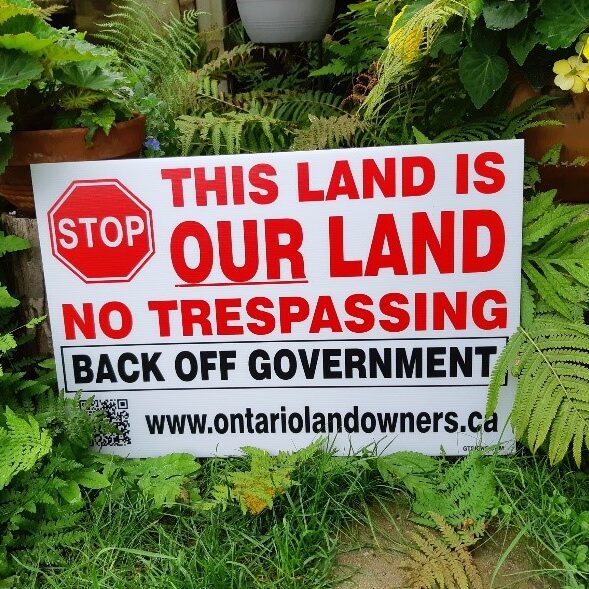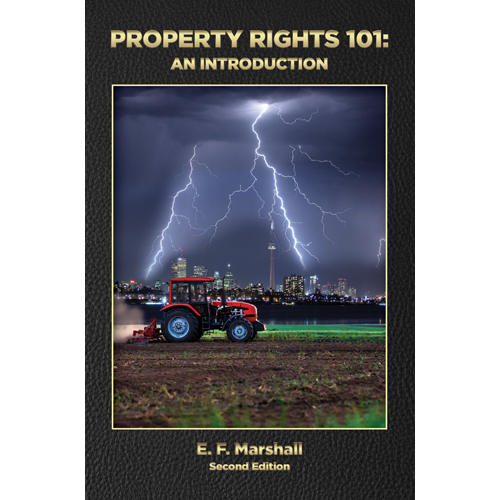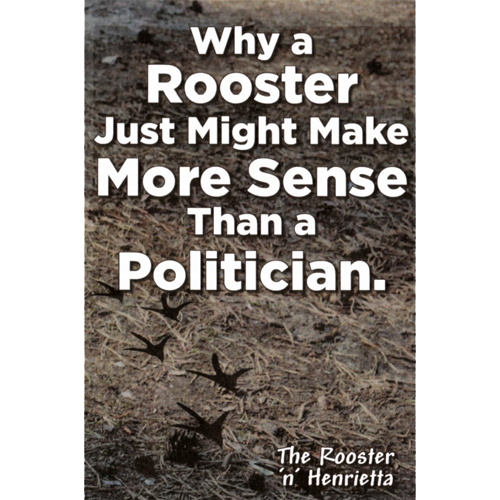The End of the Beginning by Jean-Serge Brisson
- 2019-11-01
- By admin
- Posted in Latest News
When my activities in support of freedom started practically 30 years ago to the month of October 2019, I never thought it would bring me to this situation.
Now for those who don’t know about me, and my relationship with the Canada Revenue Agency or CRA (formerly known as Revenue Canada), and the tax agencies of both Ontario and Canada, here is a quick explanation.
In 1991, after having written several letters to the Province of Ontario on being an unpaid tax and money collector for them, I resigned my position with them by burning my vendors permit in their office with media in attendance.
I was angry when I sent that first letter to the Ontario Retail Tax in October 1990, but it felt too good not to do it. That letter started a chain of events that has guided me to where I am today.
And as this story was being followed by Dave Brown in the Ottawa Citizen, my interactions with the government tax agencies were very much on the people’s mind at the time.
After two years of threats by the Ontario government to be taken to court if I didn’t comply with their demands to collect taxes without compensation for so doing, it ended up being the Federal Government that initiated action when the 1993 federal election was called. Nothing happened during the election, but the court process was started. The charge against me was failing to file GST returns. Basically, the same kind of charge I just recently faced with the CRA which was failing to comply with a demand notice to file Income Tax returns.
The 1993 GST non filing trial took almost one year to get done. During that trial, the original investigator for the Province of Ontario attended the proceedings. When I approached her at a break to tell her I remembered her, she expressed interest in discussing my position on the GST further, and so we picked up a conversation during a further break.
Now, the trial I was in was never going to address my issue of slavery for small businesses on collecting money for the government without proper compensation to do it. The said investigator commented to me that if I ever won my case on receiving compensation, she said that it wasn’t going to simply affect sales taxes, which I readily acceded to. She repeated it again, because she thought I didn’t understand what she was saying. When I repeated again that I realized the far reaching implication that it meant, not just in relation to sales tax but all monies collected, including EI, CPP, income taxes, and all other payroll deductions that a business has to do for its employees and the government without compensation which would then come to an end, she was taken aback. She realized that I was not just tripping over my feet into this action, but that this was my full intention: to end this practice by government on small businesses.
At the end of the GST trial in 1994, the provincial investigator informed the Crown on the case that even if I was found guilty on not filing, they would not have succeeded on forcing me to start collecting taxes without compensation. The only way they could force me to do so was to take me to court on the action of collection itself and the investigator informed the Crown that they would lose that motion.
Even though the government won its case on forcing me to file the GST returns, from that moment on, the government failed on making me a money collector for them again.
This situation basically remained as such for the next 20 years. I stopped again filing GST returns two years later and never filed another income tax return either as of the year 1991. The government gave up on any further legal proceedings. Without going into those details right now, I will jump to present day.
I had been giving public presentations on what I had done with refusing to collect money for the government and I did so across the country. Eventually I wrote a book about it in 2014 called, Tea Party of One.
I didn’t really know what would happen next, but the book started a chain reaction that was not expected but was needed.
Unbeknownst to me, the book revived my case with the CRA, who had been watching me from afar. A year after having done my book tour across Canada, the CRA served me on November 2015, with a notice to file nine income tax returns for the last nine years.
I was given until March 2016 to comply.
The CRA failed to do anything until the Ontario provincial election in 2018, where I ran as a candidate for the Ontario Libertarian Party. A few weeks after the debate that I took part in on Rogers TV in May 2018, I was served with a summons to appear in court for non-filing of income tax returns.
It was in July of 2018 that I made my first appearance in court. At that appearance I was given a first release of disclosure. When I looked through that disclosure, I could see that the CRA had a very detailed record of my activities for the past 20 years. So much so, that the Crown had even included the reasons of why they didn’t prosecute me earlier.
Year after year, the comment written on my situation was “Low Tax Potential”.
When the CRA makes an action against anyone, those making that decision must validate it by the return on the investment for the investigation and prosecution, to validate on making it worthwhile.
In my case, what made it “worthwhile” was this comment in the 2015 notes of a CRA official: “He is an author, he does public presentation, he is a tax protestor, prosecute”.
My book is the reason why the CRA initiated the process to prosecute me without going through the need to validate the return on investment being brought up. It was now a matter of punishing me at all costs because of the book I had written.
The court proceedings on this matter lasted a year, before the trial took place and I got my decision this last Thursday (October 24, 2019).
The case that my friend David Lindsay put together, and he deserves all the credit for putting together my defence, took the CRA by complete surprise.
The initial defence was to raise a Constitutional Question on the legality of taking someone to court for a political opinion, which is what my book was about.
But when we saw what the CRA was putting forward as their argument to prosecute me, it was then that there was a shift on the strategy to my defence.
The original demand notices served on me to file tax returns, had a demand that I file these returns to the CRA official’s office on Laurier St. in Ottawa.
The CRA was then relying solely on the Affidavits filed by their agents as proof enough to prosecute me. These affidavits essentially evidenced that the CRA official did a careful search of the CRA records and did not find my returns.
I proved at court (by way of the CRA official’s admission in evidence) that there is no provision in the Income Tax Act nor any other statute, that authorizes him to demand that I, or anyone else, file income tax returns to any specific address. Even the Judge agreed that he could find no such law.
Once that was established, I then asked the CRA official how he would search the CRA database and records for all of Canada. His response was that he relied upon and used, my alleged Social Insurance Number, or SIN.
My defence was to show that nowhere did the CRA prove that the SIN that they were using to prosecute me, was really mine. All the CRA official could do was say that the number was on the file all along, but he did not verify the accuracy of the SIN at source. It was at that point, hearsay evidence, and hearsay evidence is not permitted in these types of cases, only direct personal knowledge. And the judge agreed that there was no evidence by the CRA proving that the SIN in question was actually mine, and I was found Not Guilty.
I was very happy with the decision that I received. But I do not want to remain sitting around for them to come back at a later day with basically the same approach.
The entire intent of the CRA was to punish me for challenging their authority and proceedings on how the CRA does business with the people that it fleeces every year. Not just what we pay to them, but who does the work on allowing the money to flow to the government.
When the issue basically died down after the GST trial, I didn’t know what I would do to force a resolution to the situation I was in. I mean, I didn’t do all of this just for kicks. As per my comments to the investigator I had said back in 1994, my intent was to end this practice of slavery by small business for the government.
That is why during the latest trial, I mentioned to David Lindsay that should I come out of this with a victory, it can’t stop here, and he agreed.
This last court action by the government towards me, was just “The End of the Beginning.”
As of this day, the intent is to start a Constitutional Challenge to how governments force small business to be their money collectors for no compensation. It is one of the last bastions of slavery in our society and the time has come to end this fraudulent practice.
But this is not just a small venture. This is a big one, if not the biggest challenge to government powers ever initiated. But it has to be done. Especially with what has recently happened.
As per what happened when Howard Galganov and I challenged the Bilingual Sign Bylaw when it was introduced in my municipality of Russell Ontario, I intend to do the same on the challenge to business slavery for governments.
I will never be charged for not collecting money for the government. As a result, if they won’t take me on, then the government will have to be taken on.
This will mean bringing in expert witnesses on various issues such as slavery, labour laws, Constitutional experts, and more, to prove that the government does not have the power to ever have established such a collection system on its people, specifically targeting a segment of society, which is its entrepreneurs.
What will this do or cause to happen?
When the day comes that businesses do not have to collect money for the government, then it will be up to each and every individual to send in their own taxes.
As for contributions by employers to government programs such as EI, a formula can be figured out. I am not going to argue the specific math at this time, but let’s just say an amount such as 30% of a salary would be given to an employee to cover the employer’s share to pay for those “programs”. From there, the employee would send in that part and also their own personal contributions to those programs. So, if someone makes $20.00 per hour, and the top up is 30%, $6.00 per hour more would be sent to the Federal Government.
The employee would send in that $6.00 themselves, plus their own $6.00 an hour, leaving the employee with $14.00 dollars an hour of their salary. Now, THEY would start to feel the pain of having to send in that money every month. Same as many small businesses have to do now. Because as it stands now, when they receive their paycheck, the employees don’t feel the pain of having to pay the government, the employer does that for them.
Having to send in their contributions personally every month will change the attitude of many. Thus, having a third of the country’s voters not bothering to go to the polls would definitely change. To what percentage I am not sure, but many more would go and many more who do vote would not do so as cheering for a hockey team. There would definitely be more care behind who they will stand to run the country and in the same exchange, manage their future.
And naturally, this venture will cost a lot more than what I just spent in this last court case.
There are already plans being made to proceed with this venture.
Stay tuned for more to come in the future.
Search:
Categories
Archives
- April 2024
- January 2024
- December 2023
- November 2023
- August 2023
- July 2023
- June 2023
- May 2023
- April 2023
- March 2023
- February 2023
- January 2023
- December 2022
- November 2022
- October 2022
- September 2022
- August 2022
- July 2022
- June 2022
- May 2022
- April 2022
- March 2022
- February 2022
- January 2022
- December 2021
- November 2021
- October 2021
- September 2021
- August 2021
- July 2021
- June 2021
- May 2021
- April 2021
- March 2021
- February 2021
- January 2021
- December 2020
- November 2020
- October 2020
- September 2020
- August 2020
- July 2020
- June 2020
- May 2020
- April 2020
- March 2020
- February 2020
- January 2020
- December 2019
- November 2019
- October 2019
- September 2019
- August 2019
- July 2019
- June 2019
- May 2019
- April 2019
- March 2019
- February 2019
- January 2019
- December 2018
- November 2018
- October 2018
- September 2018
- August 2018
- July 2018
- June 2018
- May 2018
- April 2018
- March 2018
- February 2018
- January 2018
- December 2017
- November 2017
- October 2017
- September 2017
- August 2017
- July 2017
- June 2017
- May 2017
- April 2017
- March 2017
- February 2017
- January 2017
- December 2016
- November 2016
- October 2016
- September 2016
- August 2016
- July 2016
- June 2016
- May 2016
- April 2016
- March 2016
- February 2016
- January 2016
- December 2015
- November 2015
- October 2015
- September 2015
- August 2015
- July 2015
- June 2015
- May 2015
- April 2015
- March 2015
- February 2015
- January 2015
- December 2014
- November 2014
- October 2014
- September 2014
- August 2014
- July 2014
- June 2014
- May 2014
- April 2014
- March 2014
- February 2014
- January 2014
- December 2013
- November 2013
- October 2013
- September 2013
- August 2013
- June 2013
- April 2013
- October 2012
- May 2012
- September 2011



